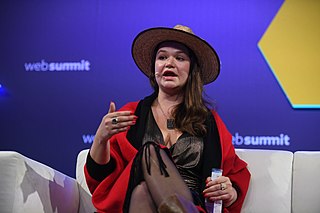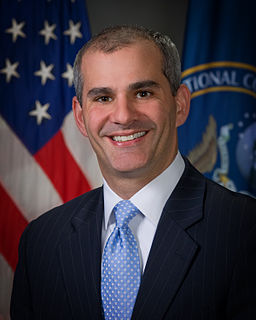Top 1200 Data Centers Quotes & Sayings - Page 4
Explore popular Data Centers quotes.
Last updated on November 23, 2024.
The big thing that's happened is, in the time since the Affordable Care Act has been going on, our medical science has been advancing. We have now genomic data. We have the power of big data about what your living patterns are, what's happening in your body. Even your smartphone can collect data about your walking or your pulse or other things that could be incredibly meaningful in being able to predict whether you have disease coming in the future and help avert those problems.
I visit T-Mobile call centers. We've got about 18 major call centers in the US, and before I was CEO, I heard that no CEO had gone to physically visit them. I go in, they meet me outside, we take selfies as I stand like a piece of furniture, I tell them about how things are going - but most importantly, I say thank you and help them see that their behavior and their work has driven the culture of the company that's changed the industry and the whole world. It's a bit of a love affair.
We just kind of relied on written scouting reports through the eighties and even the early nineties. I've really been amazed by some of the data that's out there, especially with regards to tendencies of hitters, and certainly tendencies of pitchers as well. I would have loved to have gotten that data when I played.
Centralization of society's vital services in giant computer centers, reservoirs, nuclear power plants, air- traffic control centers, 100-story skyscrapers, and government compounds increases its vulnerability. ... choosing his targets, today's saboteur could pollute a city's water supply, dynamite power transmission towers, cripple an airport control center, destroy a corporate or government computer center.
It is for these reasons that I believe we must expand day-care centers and provide other assistance which I have recommended to the Congress. At present, the total facilities of all the licensed day-care centers in the Nation can take care of only 185,000 children. Nearly 500,000 children under 12 must take care of themselves while their mothers work. This, it seems to me, is a formula for disaster.
























































